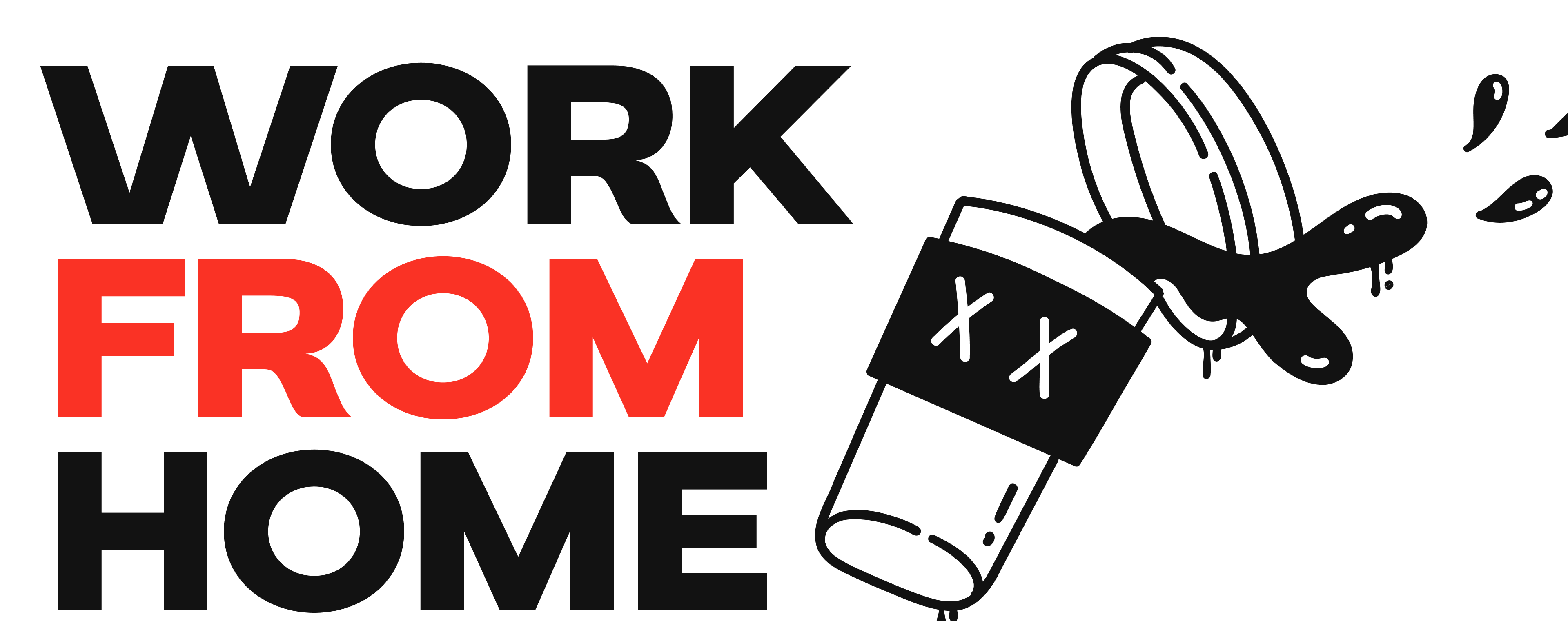vol.13 Work from home, but come home from work
When your home is also your office, the lines blur fast.
You wake up, roll over, check your phone, and boom, you’re in work mode. No commute, no office door to shut behind you, no signal that says “you’re done for the day.” Just your laptop staring at you from across the room, whispering, “Shouldn’t you be doing more?”
This was exciting at first. I remember thinking how lucky I was to be able to work from anywhere. The freedom was addicting. But slowly, I noticed something: I wasn’t leaving work anymore. I was always half-plugged in. Even after dinner. Even on weekends.
It’s not burnout that happens first. It’s erosion. The small moments disappear. The slow mornings. The evenings without guilt. You stop feeling fully “off,” and that tension builds in the background until eventually, it breaks you down.
That’s when I had to get honest with myself.
The flexibility that remote work gives you? It comes with a responsibility: you have to learn how to protect your own time.
For me, that started with something simple: moving my laptop out of my bedroom. I stopped checking emails before breakfast. I started closing my tabs like I was locking a store for the night.
You Don’t Need a Bigger Apartment, You Need Boundaries
The solution isn’t a new coworking subscription or a productivity hack. It’s boundaries and keeping them sacred.
You don't need to be perfect. Be intentional.
Here’s what’s helped me (and a bunch of people I talk to who are figuring it out too):
- Work starts when the chair changes.
Even if you live in a studio, create some physical boundary. Work from a desk or a corner—not the couch, not the bed. Let your brain know: “We’re clocking in.”
- Get dressed. Even a little.
You don’t need to dress like it’s Wall Street, but switching from sleep clothes to “I’m awake and operating” clothes helps you mentally flip the switch. It’s a signal: the day has started.
- Use a fake commute
Walk around the block before and after work. I’m not kidding. Your brain is wired for transitions. If you skip them, it just keeps running. - Office hours, but for your brain
Decide when work starts and ends. Even if your work is creative or async, set “off” hours. Protect them like your health depends on it (because it kinda does).
So we asked our Oddsbreakers,
How do you keep your
remote work seperate from
your private life?
I keep two stations, one for work one for personal stuff, and try to set hard deadlines for work and personal stuff
If you have the luxury, a dedicated room for your workplace makes it much easier to stay focused.
Still, distractions are everywhere and you need to train yourself to remove those triggers as they likely pull you out of flow state.
If you're like me, you just lock in and ignore notifications when you're focusing on a task. Also, listening to music helps me a lot to concentrate.
But sometimes that's not enough. You can define specific times for using apps that usually distract you. For example check emails only twice per day (morning and evening). Or adding a scheduled event in your calendar that mutes slack notifications for that time period.
What also might help:
- Separate OS user accounts
- Separate browser profiles
In the end, everyone has to find their own solutions as to what works best for them.
So if work is bleeding into every corner of your life right now, start small. Change the environment. Log out like you mean it. Remote work doesn’t have to mean always on. It just means you have to be the one who knows when to turn it off.
Want to become an Oddsbreaker?
Those are the people breaking the odds and working on their projects relentlessly. If you think you have what it
takes to join them, find more info in our discord.


